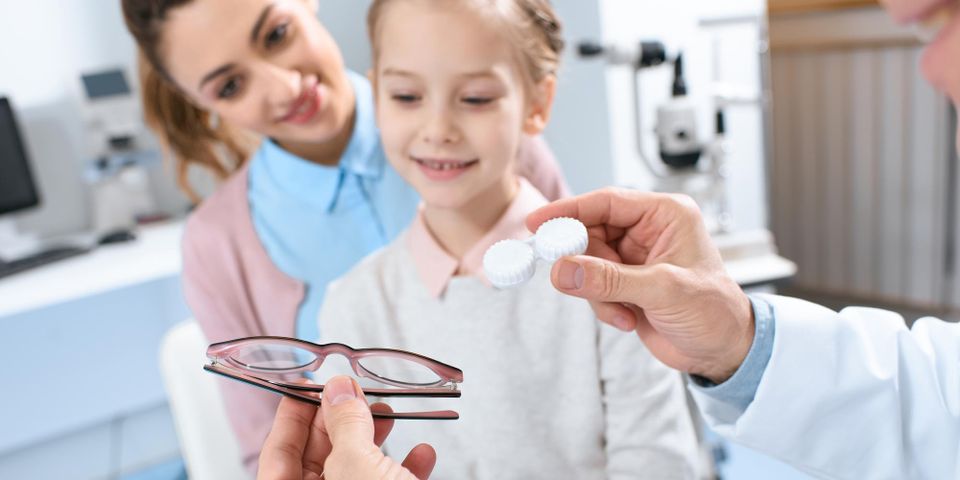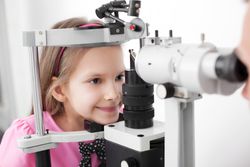
Children with near- and farsightedness, astigmatism, and other oral health issues may be apprehensive about wearing glasses. Contact lenses are a popular alternative, but they come with a lot of responsibility. It’s essential to recognize if they’re right for your child, as well as if they qualify. Use the following guide and start a dialogue with their eye doctor.
A Parent’s Guide to Pediatric Contact Lenses
What’s the Appropriate Age?
Generally, eye care professionals don’t like to prescribe contact lenses until children are 12-13 years old. Contact lenses come with a lot of risks. Children may not be as mindful of personal hygiene. If they handle contact lenses without washing their hands, they may introduce bacteria that could lead to eye infections. They could also lacerate their eye. Contact lenses account for over 70,000 pediatric emergency room visits each year. Contact lenses also aren’t as convenient. Children may not wear them as often because of the responsibility and process that comes with putting them in.
What are the benefits?
 Contact lenses may slow the progression of nearsightedness. This condition occurs when an abnormal shape of the eye bends incoming light and causes faraway objects to look blurry.
Contact lenses may slow the progression of nearsightedness. This condition occurs when an abnormal shape of the eye bends incoming light and causes faraway objects to look blurry.
They can also be better for active children—glasses are more likely to break during sports. High-impact and rapid-movement sports like gymnastics, football, and basketball are examples. Glasses frames could block peripheral vision, and even with a headband, the glasses could fall off.
If self-image is essential, contact lenses can also benefit your child’s confidence. Eyeglasses are often attributed to harmful properties. While not exact, children may feel singled-out, less attractive, or that something is wrong with them if they wear glasses because of this stigma. Weigh the pros and cons carefully with their eye doctor.
If you’re ready to explore glasses or contact lenses for your child, contact Baldwin Optical. This Foley, AL, vision center is led by a skilled team of eye care professionals. They can diagnose common vision problems, and an optician will ensure you find glasses or contact lenses to fit your needs. Call (251) 210-3741 to schedule an eye exam or visit their website to learn more about their services.
About the Business
Have a question? Ask the experts!
Send your question

